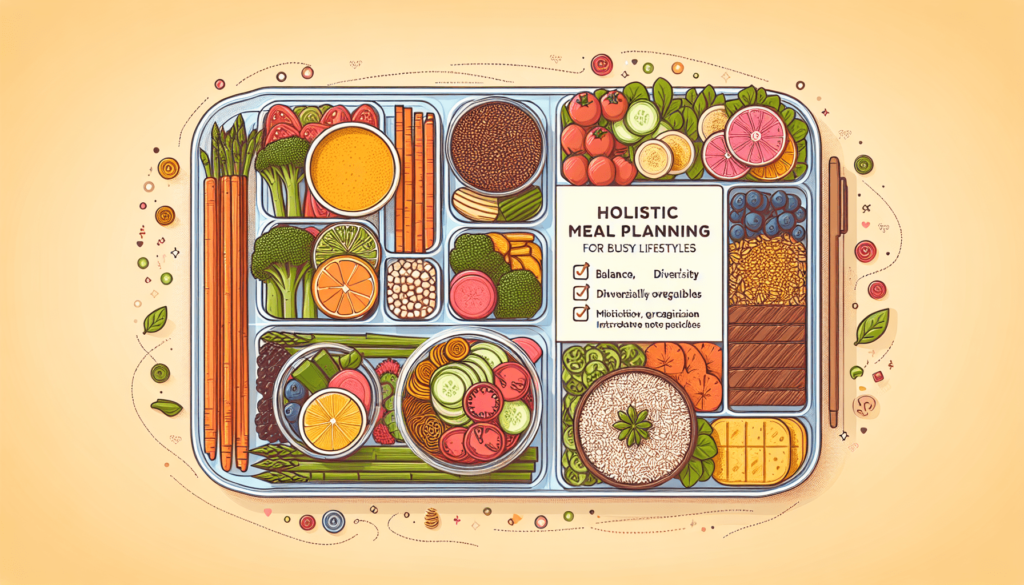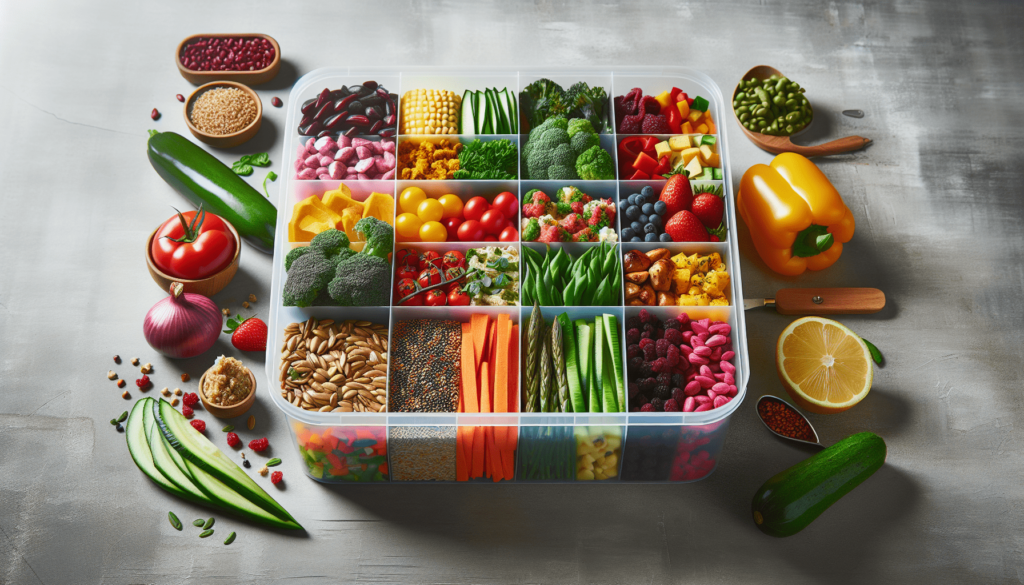Are you struggling to balance work, family, and social commitments while trying to maintain a healthy diet? Are you often resorting to takeout or fast food because you simply don’t have the time or energy to cook? If this sounds like you, then mastering the art of holistic meal planning could be the solution you’ve been looking for. By taking a holistic approach to meal planning, you can not only save time and money but also nourish your body and mind with healthy, balanced meals that fuel your busy lifestyle.
What is Holistic Meal Planning?
Holistic meal planning goes beyond simply deciding what to eat for each meal. It takes into account your unique nutritional needs, tastes, budget, and schedule to create a comprehensive plan that supports your overall health and well-being. Rather than focusing solely on calories or specific nutrients, holistic meal planning considers the quality of the food you’re eating, how it makes you feel, and how it fits into your life as a whole.
Making Healthy Choices
When planning your meals holistically, you’ll prioritize whole, minimally processed foods that provide essential nutrients and energy without added sugars, unhealthy fats, or artificial ingredients. You’ll aim to include a variety of fruits, vegetables, whole grains, lean proteins, and healthy fats in each meal to ensure you’re getting all the vitamins, minerals, and antioxidants your body needs to thrive.
Balancing Your Plate
A key aspect of holistic meal planning is creating balanced meals that contain a mix of carbohydrates, proteins, and fats to keep you satisfied and energized throughout the day. By paying attention to the macronutrient composition of your meals, you can prevent blood sugar spikes and crashes, maintain a steady level of energy, and support your metabolism and overall health.
The Benefits of Holistic Meal Planning
Holistic meal planning offers a wide range of benefits for busy individuals looking to simplify their lives and improve their health. By taking a comprehensive approach to meal planning, you can:
Save Time and Energy
By planning your meals in advance, you can save time and reduce stress during the week. Instead of scrambling to figure out what to eat for each meal, you’ll have a clear plan in place that takes the guesswork out of mealtime. This can free up valuable time and energy that you can use for other activities or self-care.
Save Money
Eating out or ordering takeout can be expensive, especially if you’re doing it regularly. By planning your meals at home and cooking for yourself, you can save a significant amount of money over time. Buying ingredients in bulk, shopping for sales, and using up leftovers can help you make the most of your food budget and reduce waste.
Improve Your Health
By prioritizing whole, nutrient-dense foods in your meal plan, you can improve your overall health and well-being. A diet rich in fruits, vegetables, whole grains, and lean proteins can reduce your risk of chronic diseases, support healthy weight management, and boost your immune system. Additionally, cooking your meals at home allows you to control the ingredients and portion sizes, making it easier to avoid hidden sugars, unhealthy fats, and excessive calories.

How to Start Holistic Meal Planning
If you’re ready to harness the power of holistic meal planning to simplify your life and improve your health, follow these steps to get started:
Assess Your Needs and Goals
Before you can create a holistic meal plan that works for you, it’s important to assess your current eating habits, nutritional needs, and lifestyle goals. Consider factors such as your schedule, budget, dietary restrictions, and food preferences to tailor your meal plan to suit your unique needs. If you have specific health concerns or goals, such as weight loss or managing a chronic condition, speak with a healthcare provider or nutritionist for personalized guidance.
Stock Your Kitchen
To set yourself up for success with holistic meal planning, make sure your kitchen is stocked with essential ingredients and tools for cooking. Keep your pantry filled with staple items like whole grains, legumes, canned goods, and herbs and spices, and make sure your fridge and freezer are stocked with fresh produce, lean proteins, and healthy fats. Investing in high-quality cookware, knives, and utensils can also make meal prep more efficient and enjoyable.
Plan Your Meals
Once you’ve assessed your needs and stocked your kitchen, it’s time to start planning your meals. Begin by creating a weekly meal plan that outlines what you’ll eat for breakfast, lunch, dinner, and snacks each day. Consider factors like variety, balance, and seasonality when choosing recipes and ingredients, and aim to include a mix of flavors, textures, and colors in each meal to keep things interesting. Make a shopping list based on your meal plan to ensure you have everything you need on hand.
Prep and Cook
To streamline your meal prep and cooking process, set aside time each week to chop vegetables, marinate proteins, cook grains, and prepare snacks in advance. Batch cooking large quantities of staple foods like grains, beans, and soups can save time during the week and make it easier to throw together a quick, healthy meal when you’re short on time. Invest in reusable storage containers to store prepped ingredients and leftovers in the fridge or freezer for later use.
Listen to Your Body
As you start implementing your holistic meal plan, pay attention to how different foods make you feel and adjust your plan accordingly. Notice how certain foods affect your energy levels, digestion, mood, and cravings, and make changes as needed to support your well-being. Remember that meal planning is a flexible process, and it’s okay to experiment with new recipes, ingredients, and strategies until you find what works best for you.
Stay Consistent
Consistency is key when it comes to holistic meal planning, so make an effort to stick to your plan as much as possible. While it’s okay to have occasional indulgences or deviations from your plan, try to maintain a routine that supports your health and well-being in the long run. Keep track of your progress, celebrate your successes, and learn from any challenges or setbacks along the way. With time and practice, holistic meal planning will become second nature, helping you lead a healthier, happier life.
Conclusion
In conclusion, holistic meal planning is a powerful tool that can help you simplify your life, save time and money, and improve your health and well-being. By taking a comprehensive approach to meal planning that considers your nutritional needs, tastes, and lifestyle, you can create a sustainable plan that supports your busy life. Whether you’re looking to eat healthier, save time in the kitchen, or reduce your food budget, mastering the art of holistic meal planning can help you achieve your goals and live your best life. Start small, stay consistent, and trust the process as you embark on this journey to a healthier, happier you.


